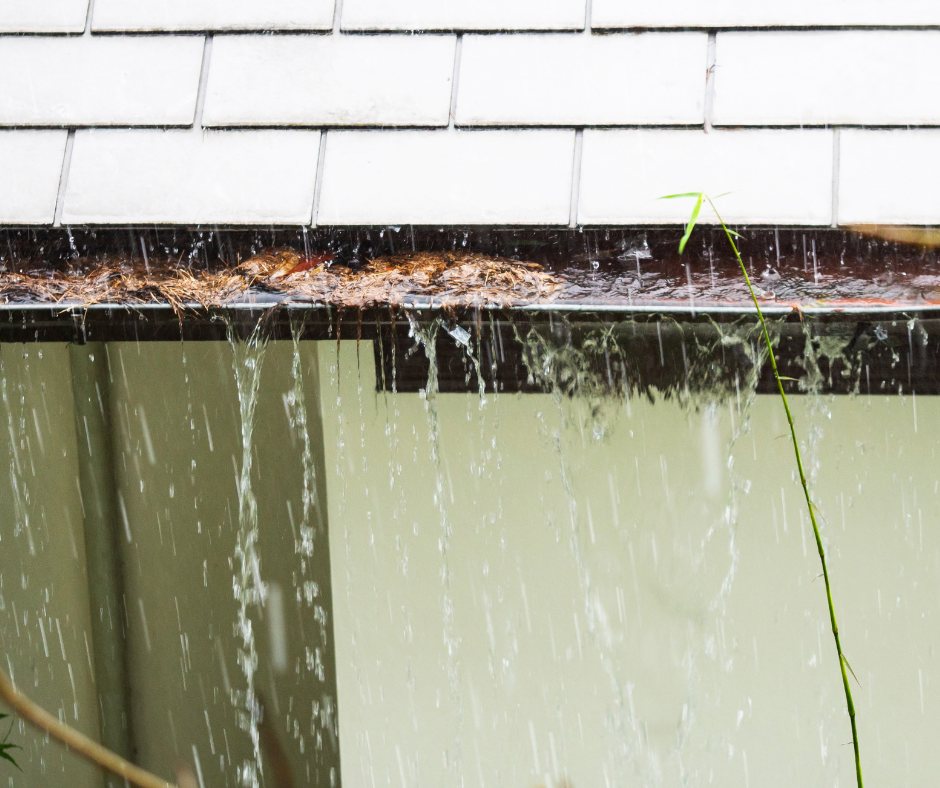Long Island, with its breathtaking landscapes and coastal charm, experienced recent heavy rains that left their mark on the region. Manhattan observed nearly 2 inches of rainfall over the last 24 hours. Areas like Islip, NY saw 4.5 inches and Montauk nearly 3 inches. Although it’s not a record for rainfall accumulation over a 24 hour period, it is a substantial amount of rain that has impacted many Long Island homes and businesses. The current New York State 24-hour precipitation record was set on August 12-13, 2014, at Islip Macarthur Airport (Islip, NY) with 13.57 inches. While the rain may have brought relief from the summer heat, it also brought with it the potential for mold growth. In this blog, we will delve into the impact of heavy rains on Long Island and discuss when it’s crucial to consult a licensed mold inspector to safeguard your property and well-being.

The Convergence of Heavy Rains and Mold Growth
- Excessive Moisture: Heavy rains can saturate the ground, penetrate structures, and seep into porous surfaces, creating a conducive environment for mold to thrive. The excess moisture acts as a catalyst, triggering the germination and growth of mold spores that may be present in the air or on various surfaces.
- Elevated Humidity Levels: Following heavy rain, the humidity levels in the atmosphere tend to rise. Mold requires a relative humidity of around 50% or higher to proliferate. The combination of increased moisture and elevated humidity creates an optimal breeding ground for mold to colonize and spread.
- Lingering Dampness: Even after the rain subsides, residual dampness may persist in certain areas. Moisture trapped in walls, ceilings, or hidden spaces can go unnoticed, providing a nurturing environment for mold to flourish.
Why Consult a Licensed Mold Inspector
- Visible Mold Growth: If you notice visible signs of mold growth, such as discoloration, musty odors, or black spots on surfaces, it is crucial to consult a licensed mold inspector. They possess the expertise and experience to identify the type of mold and assess the extent of the infestation.
- Unexplained Health Issues: Mold can have adverse effects on health, especially for individuals with respiratory conditions or weakened immune systems. If you or your family members experience unexplained allergies, respiratory symptoms, or persistent health issues, it may be prudent to consult a licensed mold inspector to investigate potential mold sources.
- Water Damage or Flooding: If your property has recently experienced water damage or flooding due to heavy rains, it is highly recommended to seek the services of a licensed mold inspector. They can assess the extent of the water intrusion, identify hidden areas of moisture, and determine if mold growth has occurred as a result.
- Pre-Purchase or Pre-Rental Inspections: If you are considering purchasing or renting a property on Long Island, especially after heavy rain events, it is wise to engage a licensed mold inspector as part of the inspection process. They can evaluate the property for any existing mold issues, ensuring you make an informed decision regarding its condition and potential health risks.
The recent heavy rains on Long Island have raised concerns about mold growth in various residential and commercial properties. Understanding the correlation between heavy rains and mold growth is crucial for early detection and prevention. By consulting a licensed mold inspector when visible mold growth is observed, experiencing unexplained health issues, encountering water damage, or considering a property transaction, you can ensure the safety of your living or working environment. Act promptly to mitigate any potential mold-related risks and safeguard the well-being of yourself and your loved ones.
For professional advice and assistance regarding mold testing, remediation, and health concerns, contact us today!

